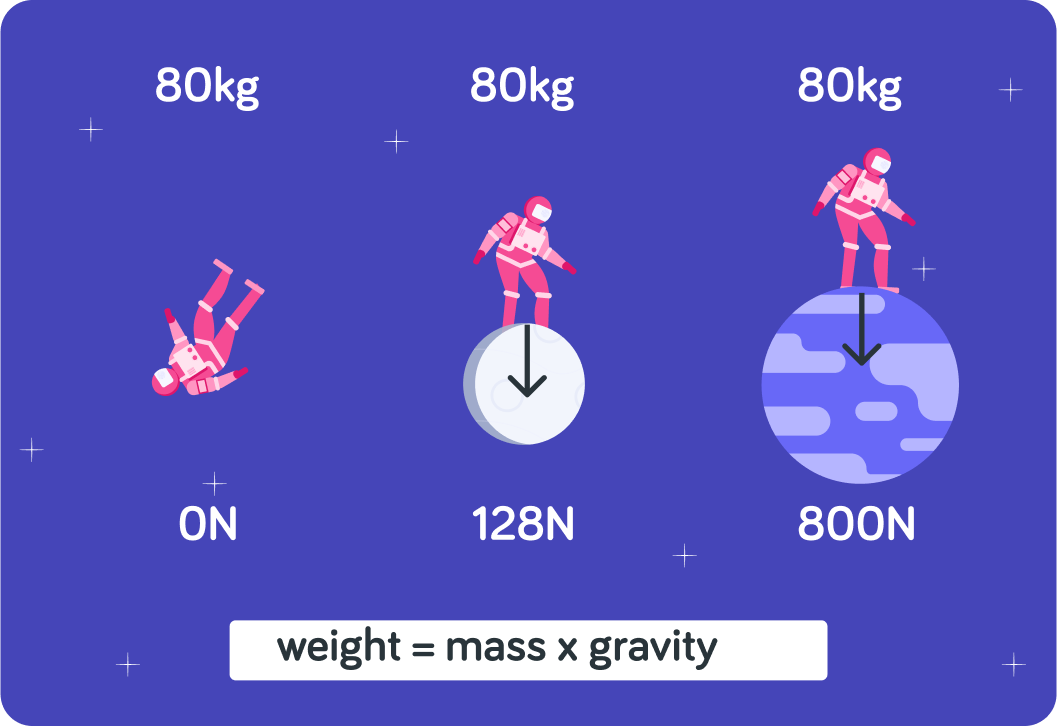YOU ARE LEARNING:
Weight as a Vector

Weight as a Vector
The "direction" of weight is for example "towards the centre of the Earth".
Weight is a vector ** quantity*, which means it has both a magnitude and a direction.*

Weight is a vector quantity, so it has both a magnitude and a direction
What is the magnitude of the weight given in this image?


Which one of these options do you think is the best description of the direction of the weights given in this image?


So in this example, the "direction" of weight is "towards the centre of the Earth"
The direction of weight matters, because if you change it to for example "towards the centre of the Moon", then the weight will change!

Weight's magnitude is dependent on its direction
Does an astronaut have the same weight on the Moon as on Earth?

The same astronaut will weigh less on ____________.

So the astronaut's weight is different depending on where they are - for example on the Moon or on Earth. Why do you think that is?

What if an 80 kg astronaut is hanging in space where gravity is zero? What will be his weight?

Summary!
So what is weight's "direction"?
Weight's "direction" refers to the fact that your weight changes, depending on where in the universe you are.

Weight's direction matters because depending on the direction, the weight will change!
If you mass is acting towards the centre of the Earth your weight is greater than if it was acting towards the centre of the Moon.
You might even be weightless in space!

The formula for weight is weight=mass×gravity
So if gravity changes, weight will change (mass stays the same).
For example, gravity on Earth is approximately 10 N/kg, but on the Moon it is only approximately 1.6 N/kg

